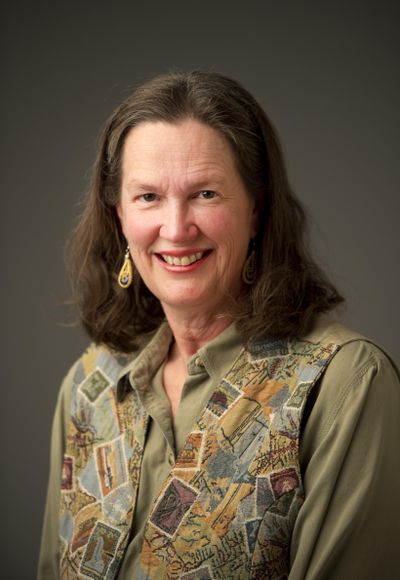Sue Lani Madsen: Supreme Court races are under-the-radar but can change lives in big ways, so vote

The McCleary decision on school funding and the ruling to block charter schools inspired a small bipartisan group of legislators, including former U.S. Sen. Slade Gorton, to recruit challengers.
Position 1 features retired Gonzaga University law professor David DeWolf versus appointed Justice Mary Yu. Current Chief Justice Barbara Madsen (no relation) is facing Kittitas County Prosecuting Attorney Greg Zempel for Position 5. Federal Way Judge Dave Larson and incumbent Justice Charlie Wiggins are competing for Position 6.
When asked whether there was a better alternative to select judges, most supported elections. Larson said more forums like the one held in Spokane would help voters discern differences rather than just comparing resumes. Wiggins was part of a committee that tried to design an appointment process, but he said “who picks the pickers” becomes the problem.
With limited information, judicial elections see a pattern of undervoting compared to the top of the ticket. According to records provided by Secretary of State Kim Wyman, 96.8 percent of those casting a ballot in the 2012 general election voted in the gubernatorial race, while only 77.3 percent voted in the single contested Supreme Court race on the same ballot. The 20-percentage-point gap has held steady for the last four primary and general elections.
I hope that record of undervoting will be broken this year. These are six highly qualified attorneys who know how to speak judiciously, but the forum questions did manage to highlight meaningful differences among the candidates.
Asked to describe the most important issue facing the court, Larson pointed to restoring confidence and healing the division between the judicial and legislative branches. Wiggins was surprisingly specific when he named McCleary and school funding, based on how public education affects our future. DeWolf pointed to Wiggins’ answer as illustrating the basis of the confidence problem when cases appear to be settled based on desired policy outcomes rather than the law.
Yu seconded the confidence problem but pinned it to minority populations feeling they don’t get a fair hearing. Madsen complained of a lack of public understanding of how courts work. From Zempel’s point of view as an elected county official, the public confidence problem doesn’t stem from a lack of understanding but a lack of trust in fair treatment.
Asked how the courts can act to interrupt the school-to-prison pipeline, Madsen pointed to the court establishing a commission on children in foster care. Zempel, who is a foster parent, criticized the court’s activism. He said departing from judicial impartiality and becoming a cheerleader for legislative reform is an example of overreach.
Yu pointed back to the Legislature, which has involved the legal system in schools by criminalizing adolescent behavior without allowing discretion. DeWolf said the temptation as a judge is to see all problems as having judicial solutions, when the remedy to legislative policy problems is to elect a new Legislature.
When asked about reconciling personal beliefs with the law, all agreed it is the highest duty of a judge to overcome personal opinion and focus on the law. While differences in personal experience and perspective can inform questions, in the end it’s about the state constitution. Larson called it “liberating” to set personal opinions aside to focus on the law. Yu noted that other judges hold a judge to the standard.
Not discussed was how the current court lacks diversity of perspective. Of the nine current judges, only Justice Debra Stephens can claim Eastern Washington as a significant part of her personal and professional life. David DeWolf and Greg Zempel hope to add geographic diversity to the court; both are from Eastern Washington. Zempel would be the only member of the court to have experience as a prosecuting attorney.
Elections are how judges are held accountable to the people, but it only works if we the people make informed decisions. Washington voters need to step up this year and close the undervoting gap.
Columnist Sue Lani Madsen can be reached at rulingpen@gmail.com.